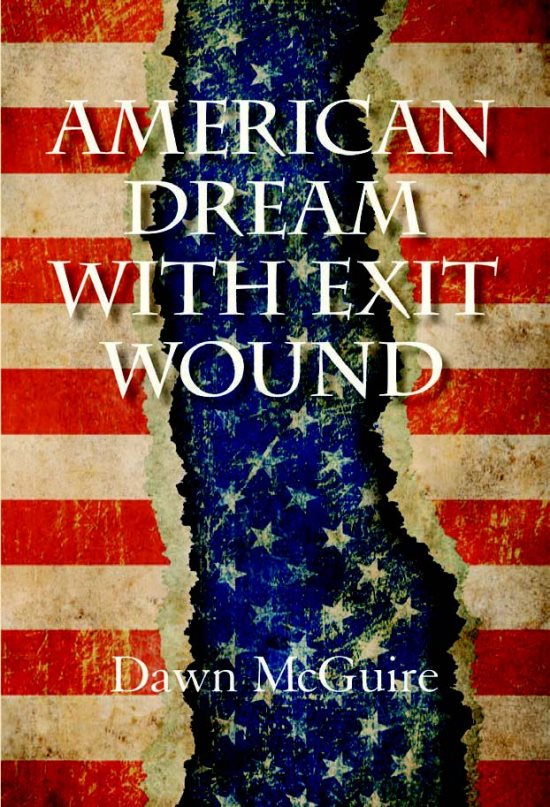 | | | Dawn McGuire Photo by Sonia Menenberg | | | | | | Orinda poet Dr. Dawn McGuire has just launched her fourth book of poetry, inspired by her work as a neurologist with veterans returning from the wars in Afghanistan and Iraq.
 McGuire's unique perspective stems from the work she does at her free clinic with veterans to treat their neurological symptoms like phantom limb pain, head injuries and Post Traumatic Stress Disorder. But in order to treat these men and women returning from war, she is compelled to understand the psychology of the patients and how that is also impacting their brain. She spends a lot of time with her patients to develop trust and find a new language that can build a connection.
McGuire's unique perspective stems from the work she does at her free clinic with veterans to treat their neurological symptoms like phantom limb pain, head injuries and Post Traumatic Stress Disorder. But in order to treat these men and women returning from war, she is compelled to understand the psychology of the patients and how that is also impacting their brain. She spends a lot of time with her patients to develop trust and find a new language that can build a connection.
 "If I can be part of restoring their sense of agency, then that is a cherished success," says McGuire.
"If I can be part of restoring their sense of agency, then that is a cherished success," says McGuire.
 The book, "American Dream with Exit Wound," gives voice to the post 9/11 vets. "I don't pretend that I can feel what they feel or experience their inner life, but I can create an empathic connection through the poems," explains McGuire. "I see real pain. Not all of it stems from the body, but it acts out through the body. Some of the poems are written from the perspective of family members and their pain as well."
The book, "American Dream with Exit Wound," gives voice to the post 9/11 vets. "I don't pretend that I can feel what they feel or experience their inner life, but I can create an empathic connection through the poems," explains McGuire. "I see real pain. Not all of it stems from the body, but it acts out through the body. Some of the poems are written from the perspective of family members and their pain as well."
 She says that the U.S. does a lot of training to get soldiers ready for war. "They go to war and make sacrifices - morally, physically, psychologically - then we expect them to automatically reassimilate when they return. We have no boot camp to retrain them to be who they were before the left." The result can be depression and social isolation.
She says that the U.S. does a lot of training to get soldiers ready for war. "They go to war and make sacrifices - morally, physically, psychologically - then we expect them to automatically reassimilate when they return. We have no boot camp to retrain them to be who they were before the left." The result can be depression and social isolation.
 A neurologist since 1991, McGuire conducts research on brain trauma at the Neuroscience Institute at the Morehouse School of Medicine. She began her free clinic in 1990 helping AIDS patients with neurological problems.
A neurologist since 1991, McGuire conducts research on brain trauma at the Neuroscience Institute at the Morehouse School of Medicine. She began her free clinic in 1990 helping AIDS patients with neurological problems.
 She has been writing poetry since the age of 15. "One of the things I fell in love with medicine is the beautiful language. The Greek and Latin roots in medicine feel like you are touching history," says McGuire.
She has been writing poetry since the age of 15. "One of the things I fell in love with medicine is the beautiful language. The Greek and Latin roots in medicine feel like you are touching history," says McGuire.
 McGuire's previous book of poetry "The Aphasia Café," published in 2012, deals with her response to patients who have experienced damage to the part of the brain that controls language, often due to strokes. It won the 2013 Indie Book Award.
McGuire's previous book of poetry "The Aphasia Café," published in 2012, deals with her response to patients who have experienced damage to the part of the brain that controls language, often due to strokes. It won the 2013 Indie Book Award.
 Aspects of the new book also deal with loss of language, but in the case with vets, it's often due to severe physical and emotional pain.
Aspects of the new book also deal with loss of language, but in the case with vets, it's often due to severe physical and emotional pain.
 McGuire, who herself has lost family and friends in war, bases her practice on slowly building a safe place for patients to connect so she can really help them, not just with their neurological symptoms but with their inner wounds, too.
McGuire, who herself has lost family and friends in war, bases her practice on slowly building a safe place for patients to connect so she can really help them, not just with their neurological symptoms but with their inner wounds, too.
 In writing this book of poetry, she expressed, "I hope people will arise more curiosity and concern for what our vets go through." She poses questions like, What if we were able to change the experience for returning vets? What if they didn't have to wait three month to see a VA doctor? What if we did proper reassimilation? What if we gave proper medically-assisted detox from pain killers? Aren't these things also worth fighting for?
In writing this book of poetry, she expressed, "I hope people will arise more curiosity and concern for what our vets go through." She poses questions like, What if we were able to change the experience for returning vets? What if they didn't have to wait three month to see a VA doctor? What if we did proper reassimilation? What if we gave proper medically-assisted detox from pain killers? Aren't these things also worth fighting for?
 McGuire will be reading from her book at the Poetry Flash Series at 7:30 p.m. on May 18 at Moe's Books in Berkeley.
McGuire will be reading from her book at the Poetry Flash Series at 7:30 p.m. on May 18 at Moe's Books in Berkeley.

|

